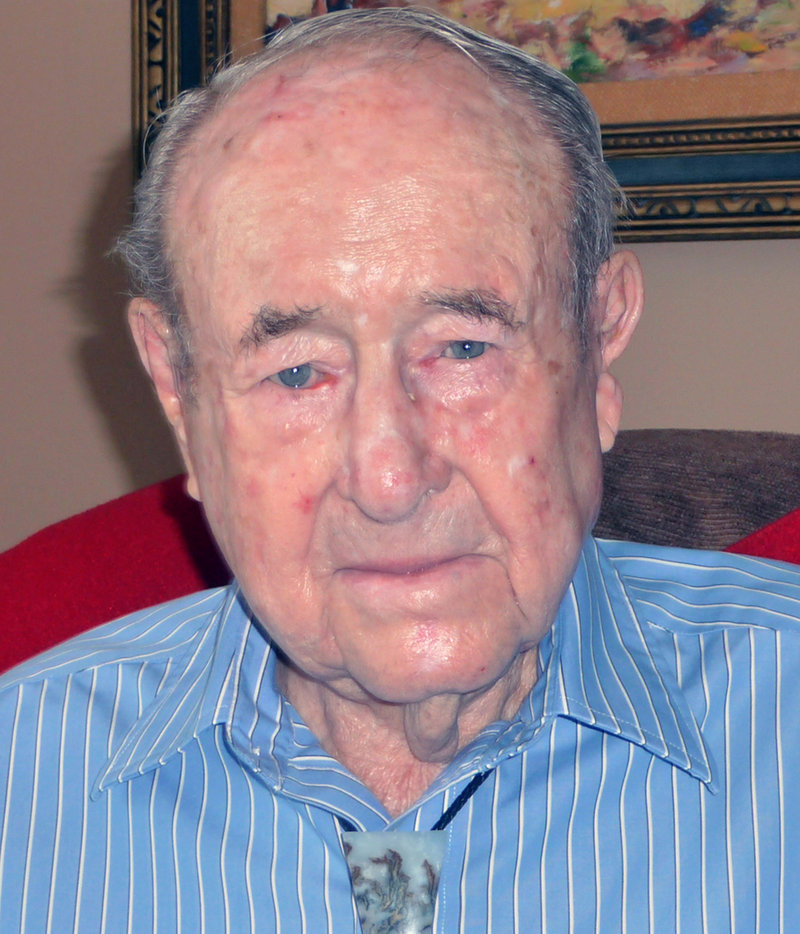WASHINGTON – There was no way Will Miles Clark was going to let his family stop him from driving over the new Hoover Dam Bypass last year, but he did make a concession.
The 106-year-old Oro Valley, Ariz., resident agreed to let his son ride shotgun.
Clark, who turned 107 on Wednesday, said it wasn’t long before other motorists started “going bonkers” at the sight of a centenarian behind the wheel.
Maybe they should get used to it: Clark represents a growing wave of Arizona residents older than 100, according to the 2010 U.S. Census. It said there were 832 centenarians in the state in 2010, a 27 percent increase from 2000.
Gerontologists offer different explanations for the increase in the oldest of the old.
Anne Morrison, director of education for the University of Arizona’s Center on Aging, thinks it has something to do with what the state’s centenarians have been through in their long lives up to this point.
“Once they’ve hit 85, the healthy ones have shown they’re strong enough to overcome problems,” Morrison said. “If something hasn’t taken them before that, they’re good beyond 100.”
It’s not just an Arizona phenomenon. Dennis Garvey, director of the Center for Successful Aging at Yavapai College in Prescott, Ariz., pointed to the birthday shout-outs Willard Scott does on NBC’s “Today” show.
“A long time ago, he used to do birthdays for anyone at 65. Then it rose to 80,” Garvey said. “But soon, he had to increase it to 100. There are so many people 85 and over in this country, that it’s not a celebration anymore.”
While the number of centenarians have changed, so too have the 100-year-olds themselves.
“They’re starting to experience the vulnerabilities of aging, but they’re camping, hiking, biking,” said Melanie Starns, assistant director of the Arizona Department of Economic Service’s Aging and Adult Services division.
And whether it’s Clark — a big fan of Google — or others using Skype, iPhones or iPads, even the most aged aren’t living like they used to.
“I see so many older people trying to see menus at restaurants by using their iPhone and iPad lights,” Starns said.
Clark said he learned how to use a computer for the first time for his 105th birthday and found too many things to Google to stay bored. He said he got rid of his encyclopedias in favor of the search engine.
“I look some crazy things up. I look up someone in sports, or learn about an artist,” he said.
Clark, who drove with his wife until she died at age 103, rode in a horse-and-buggy as a child in rural Iowa. The Model T was popular when he was studying dentistry at Creighton, and he retired from practice the year after President Kennedy was shot. He’s seen the invention of cars, televisions, refrigeration, nuclear weapons and airplanes.
“But the most amazing thing is these cell phones,” said Clark, who plans to drive to Creighton with his family to be honored at the dental school this month.
“I think about those kids with those things, and they can show pictures,” he said. “And that texting: How do they drive and do that at the same time?”
The Cronkite News Service is a program of Arizona State University’s Walter Cronkite School of Journalism and Mass Communication.
Copy the Story Link
Send questions/comments to the editors.



Success. Please wait for the page to reload. If the page does not reload within 5 seconds, please refresh the page.
Enter your email and password to access comments.
Hi, to comment on stories you must . This profile is in addition to your subscription and website login.
Already have a commenting profile? .
Invalid username/password.
Please check your email to confirm and complete your registration.
Only subscribers are eligible to post comments. Please subscribe or login first for digital access. Here’s why.
Use the form below to reset your password. When you've submitted your account email, we will send an email with a reset code.